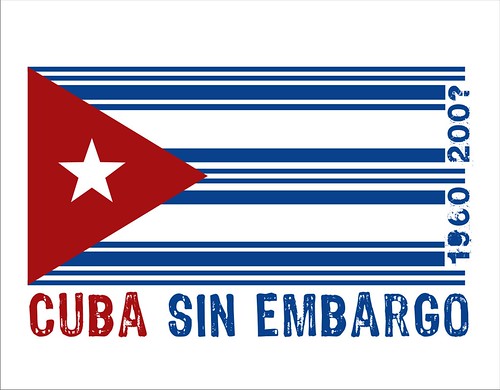
The trade embargo that the United States imposed on Cuba should be lifted. First, because it is unlawful: It threatens the free trade that is a right of individuals and peoples. Second, because it contradicts the doctrine of America’s founding fathers Jefferson and Adams who, among others, held the belief that the United States should never try to impose democracy by force on other nations. And third, because it is inefficient; if a policy has not achieved its objective after being in place for 45 years, isn’t it wiser to replace it with something that works a little faster?
Someone must think that the embargo supports liberal ideas. But it’s curious that the socialist nationalists of the twenty-first century, the “Guevaraistas” and the entire Continental Left, are all against the embargo.
If you read the miles of documents written by left-wing organizations, you will see that they argue that the profits that foreign investors make from Third World countries always far exceed those of the nationals, so this type of business ends up being disadvantageous for the host country. Using this logic, the United States, by prohibiting its companies to invest in Cuba, is actually doing Cuba a favor. But as it happens, the same people, the exact same people, that applaud legal and political measures that harass foreign investors in their own countries, are tearing their hair out because the embargo prohibits Americans to invest in the island.
On the other hand, Castro himself has written books that demonstrate that the exchange between First World countries and the less-developed ones is necessarily unequal and unjust. And this is a growing tendency.
According to the dictator, the industrial products that the rich countries sell become more expensive every day compared to the raw materials the Third World offers. Therefore, by obstructing trade between the abusive giant and little Cuba, the embargo helps to avoid that inconvenient treatment.
If you ask any leftist militant how Cuba was before the revolution, he will respond, “Ah, it was the cabaret of the Yankees.” Because of the embargo, the U.S. has disposed of the flowering pre-revolutionary tourist industry of prostitution. Therefore, if the United States prohibits its citizens to visit the island, it is helping to eradicate the prostitution that prospered in the pre-revolutionary years. But no, they do not see it that way.
The embargo has also served as the pretext behind which Castro’s dictatorship hides its blunders. A clear example is that of cattle-raising. Before the revolution, Cuba was fourth in the world in the number livestock per capita. Fidel, however, decided that it was better to plant cotton, and razed huge areas of pastureland. When it became apparent that the cotton was a total failure, Cuba tried to return to raising cattle, but it hasn’t been able to produce even 30 percent of what it had before 1959.
There are dozens of similarly stupid things that can be described that will hinder the Cuban economy from moving in a positive direction, even once the embargo is over, unless it orients itself toward the market and the individual initiative.

with communism man exploits man with captialism it is the other way around.